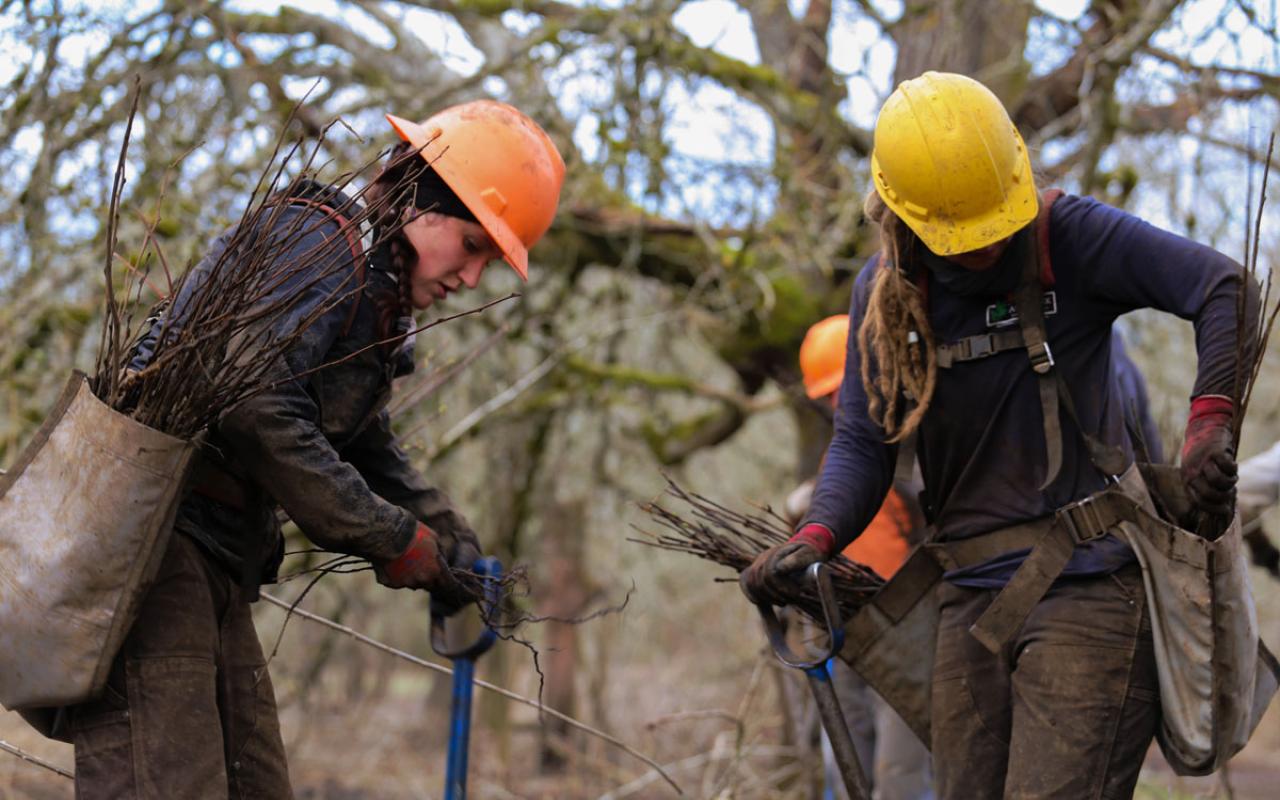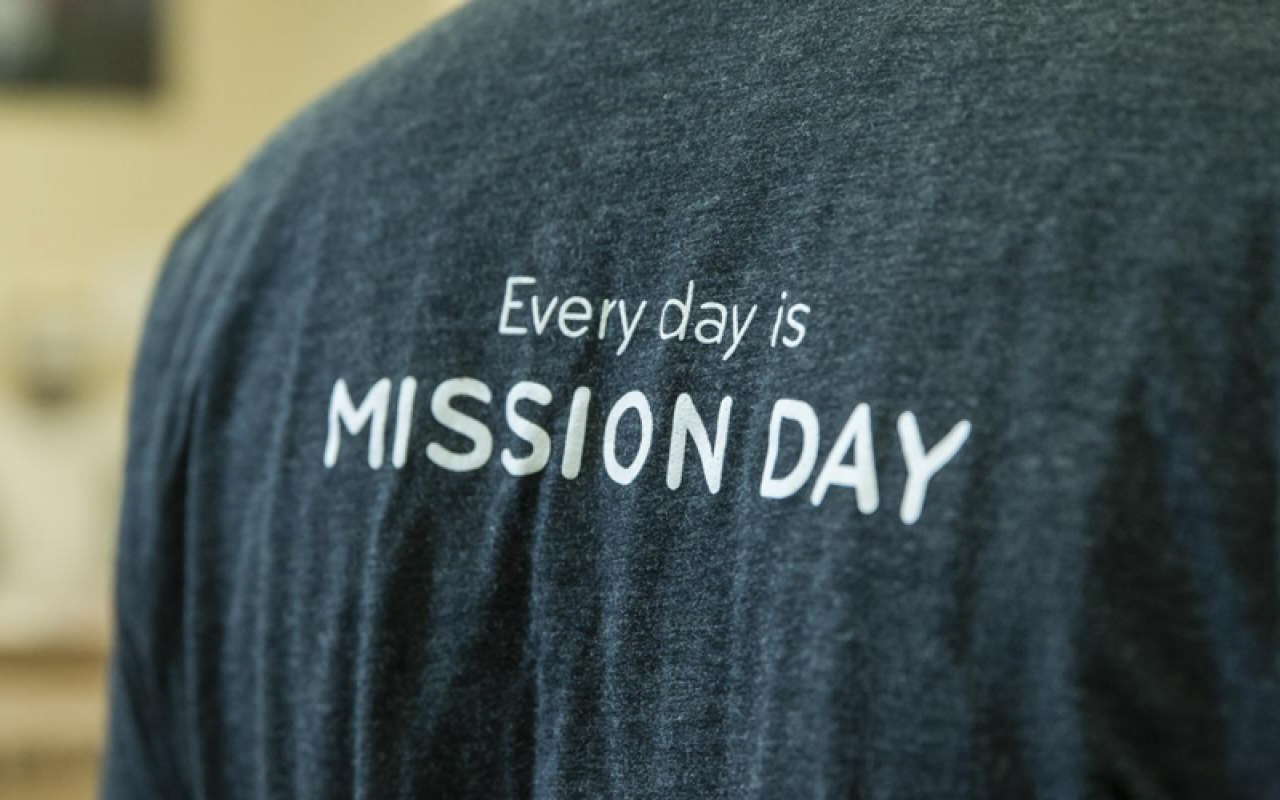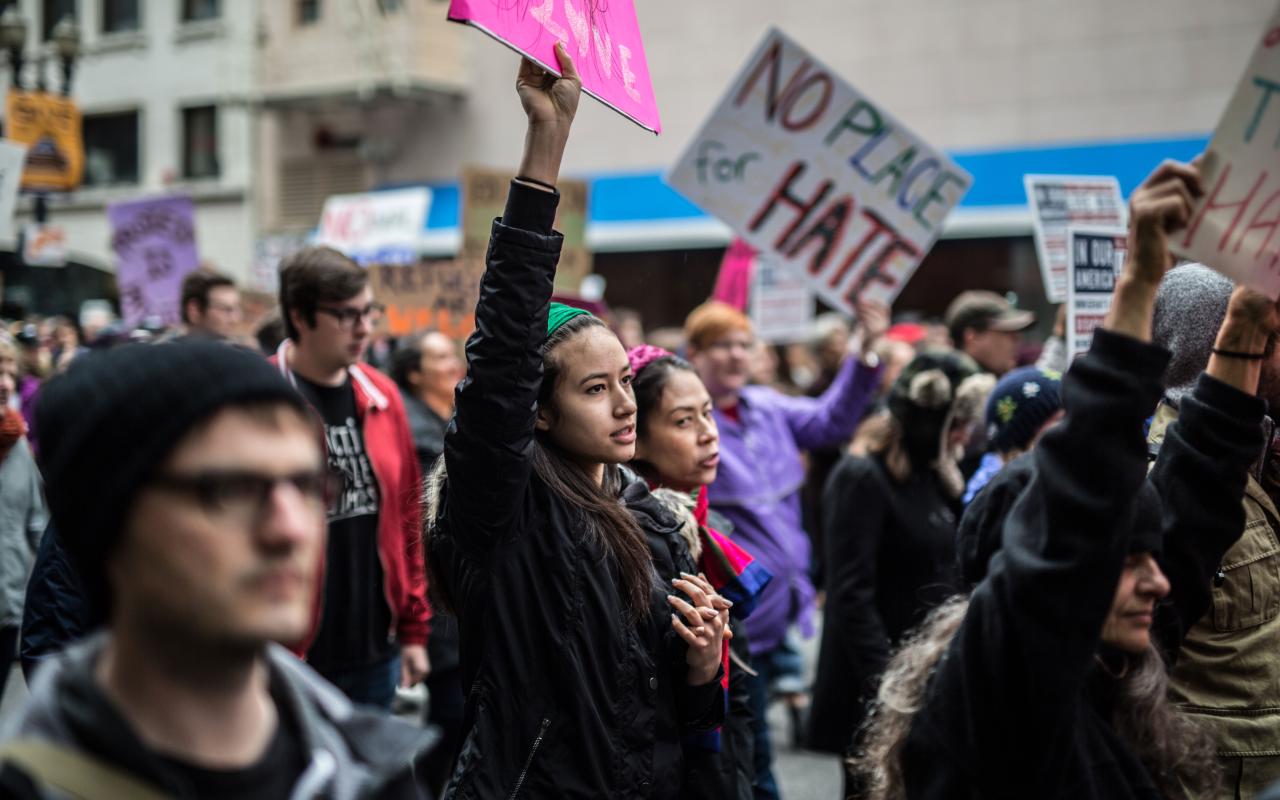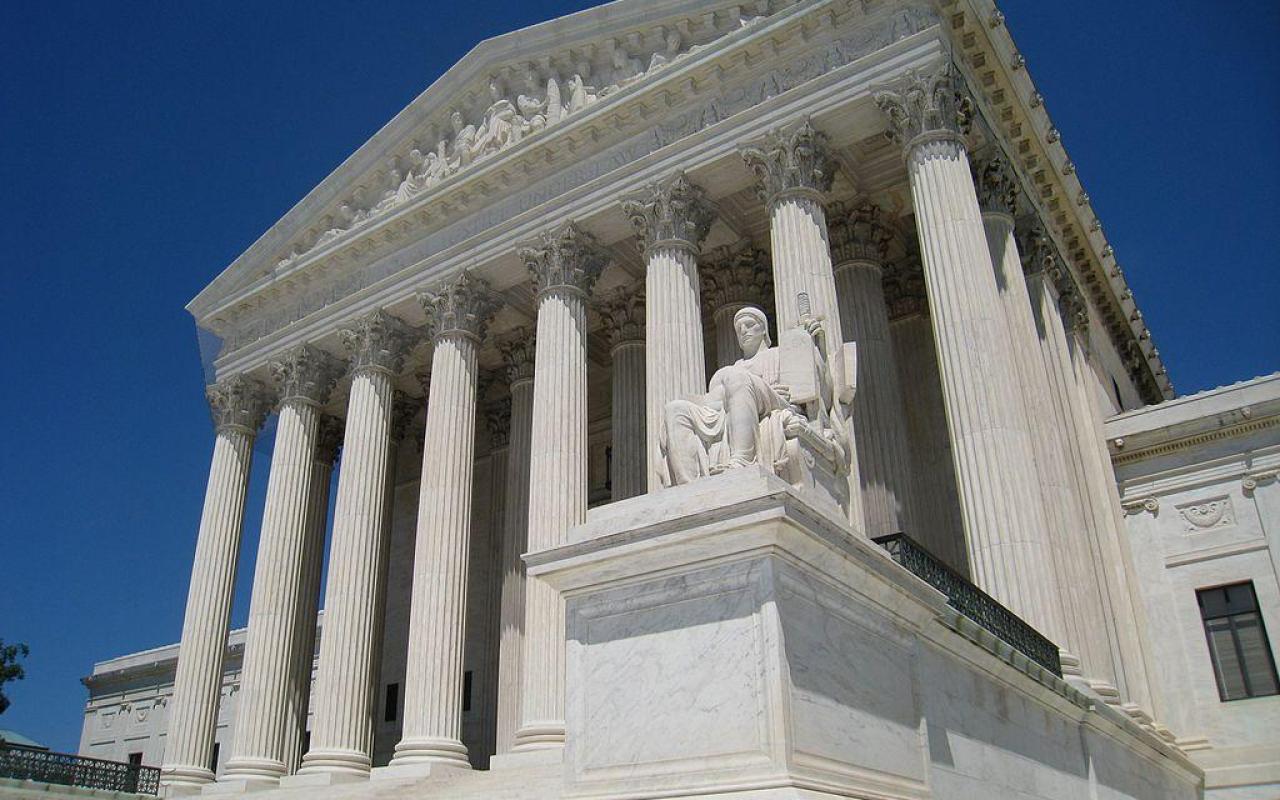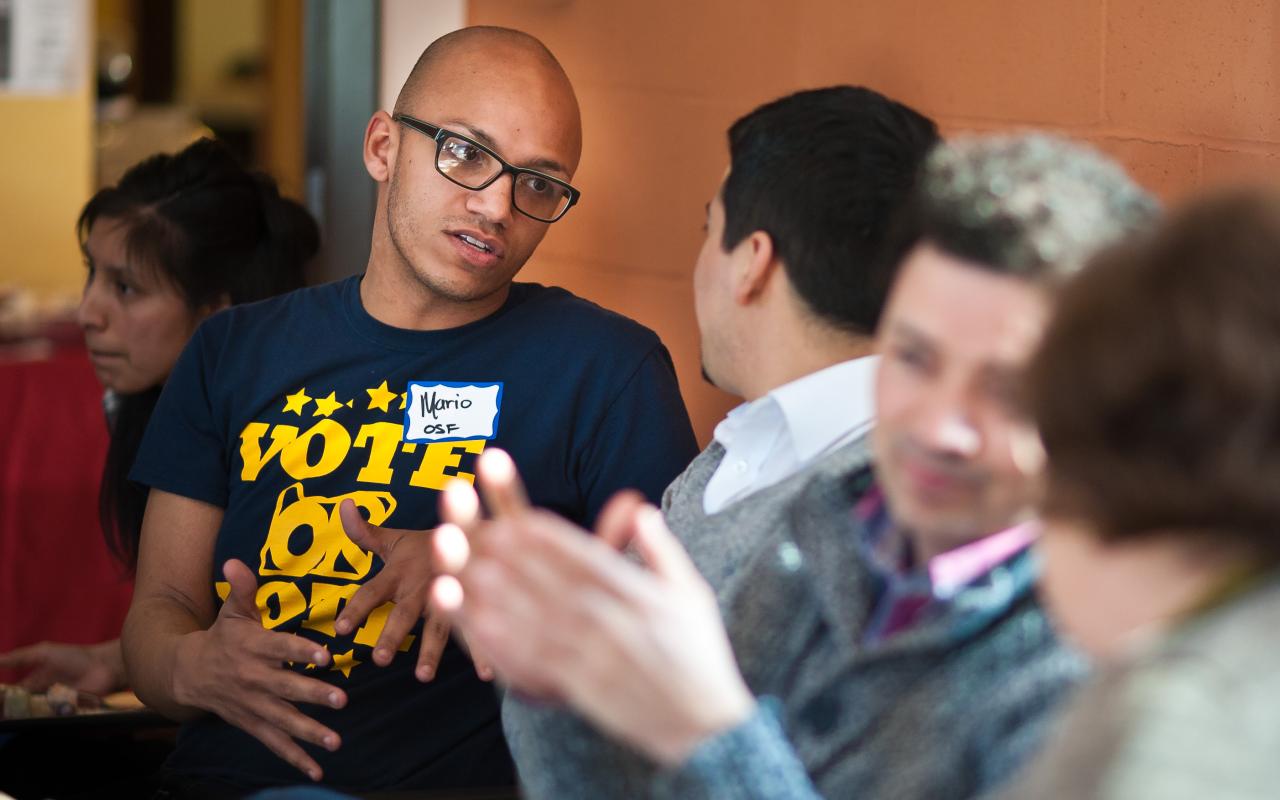Collaborating in the face of dramatic need
Recently, Meyer invited the founding members of the Oregon Immigrant and Refugee Funders Collaborative to sit down for a conversation about what prompted their support.
The following is the edited transcript of their conversation. You can listen along here:
Roberto Franco: My name is Roberto Franco. I’m the director of the Latino Partnership Program, with the Oregon Community Foundation. The reason that the Oregon Community Foundation is involved in this is that this is part of the work that we’ve done for many years now. Finding ways and supporting the integrations of the immigrant and refugees in our communities is part of what we do, and I think this specific collaborative is just an extension of that.
Cynthia Addams: I’m Cynthia Addams. I’m the chief executive officer at The Collin’s Foundation, and we have been in some form of collaboration with the Oregon Community Foundation and the Meyer Memorial Trust, and with the MRG Foundation, too, around the deferred action for childhood arrivals program for the past few years, and so this opportunity to come together again, at a time when national policies are changing so rapidly and dramatically, it just felt like a really important time for us to work together.
Roberta Phillip-Robbins: I’m Roberta Phillip-Robbins, executive director of MRG Foundation. MRG chose to be a part of this collective effort because we have traditionally supported immigrants and refugees in our state, and recognize the importance of supporting folks who bring this richness, and who really carry our economy. We couldn’t turn away and not be part of an effort to support immigrants and refugees in our communities.
Sally Yee: I’m Sally Yee. I’m a program officer with the Building Community portfolio at the Meyer Memorial Trust. Like my colleagues here, Meyer was interested in the integration of individuals into our communities and immigrants and refugees are an important part of it. They have a long history; Oregon has a long history of immigrants and then refugees coming to this state and contributing to this state. And showing their full integration in our community benefits all of us.
Moderator: Why was a coordinated and collaborative funding process necessary to support organizations working on immigrant and refugee issues in Oregon?
Cynthia Addams: Whenever we’re thinking about immigration, we’re talking and thinking about systems, and how those systems affect so many people who are either entering in the country or living the country. All of us are affected by systems in so many ways, and when a systemic action and actions are taking place, affecting so many, it feels like systems on the ground are also really important, and coordinating and collaborating in a much more robust way is the only thing you can do when you are working to respond to very big systems that are so pervasive and difficult, troubling.
Roberta Phillip-Robbins: I believe in a nutshell, that you really increase your impact if you’re able to work together. If the left hand knows what the right hand is doing, the result is usually a stronger result. And that’s why we wanted to join the effort.
Roberto Franco: Well, it’s also at the very basic level that no one entity can support all the work that can be done. But I think there is, I mean, as the saying goes, “There is force, there is power and there is strength in the numbers.” And also at a very basic level, we often ask our nonprofit partners to find collaborations and coordinate with others. So in some ways, doing a collaborative in this fashion is leading by example, as well.
Sally Yee: I think that I’ll step back a little bit from where we are at the moment and say that when President Obama, then President Obama, released his executive order that established DACA it created an opportunity, that first opportunity, for us to get together on this particular issue. It’s not that we haven’t worked together before as funders but it created that opportunity, and allowed us to model for the community and other states what I think is an appropriate response to insuring that people who are here have every right to be here and should have full access, as anyone else, to being able to thrive where they’re living. And so, in the last few years we were working towards…we were hoping we were working towards a full rollout of DACA.
Cynthia Addams: And then even the expansion of DACA.
Sally Yee: And the expansion of DACA with DAPA, which extended the protections to the families of childhood arrivals. So that was our anticipation and hope in this last election. And in the election that all changed and it all changed very suddenly. And so the work that we’re doing now seems even more important. For all the reasons that my colleagues mentioned, us working together is smarter. It’s better service to our clients; the groups and the people out in the field doing the work. We think it’s the appropriate responsiveness of philanthropy.
Roberto Franco: Someone said something about the large impact of policy and actions, which really requires a collective action as well. And that’s what this is about: the issues and actions that impact thousands of people, and that’s why it requires a collective response.
Cynthia Addams: I think one other consideration too is the last round of grants that we made as a group, we made in the fall in November, and by the time we had reached that date, our grants to the organizations serving immigrants in the state were shifting a little bit, more toward capacity building and not quite as focused on the Deferred Action for Childhood Arrivals Program. And we recognized in November, as those grants were going out, that things were changing really seriously. Which also prompted us to get everybody together shortly thereafter, everybody getting the grantees and the foundations to talk about how they were responding to the rapid changes that were happening and beginning to formulate a response on how to address those changes, and how to respond to them. So I think that really, collaboration and our ongoing conversations, and the many shifts occurring right now, certainly call all of us to work together.
We’ve also had great support from Grantmakers Concerned with Immigrants and Refugees for the last few years. And they have continued to provide matching funds for the work we’ve been doing which has been a great inspiration for us, too.
Roberta Phillip-Robbins: I’d like to add a little piece about this question. You know, why did we need to coordinate? There’s something about the funding process that is kind of mystical for organizations and this effort is to help demystify some of that. To create the “no wrong door” approach to funding access; to really allow grantees to be able to knock on whichever door they’re most comfortable with and have the same level of access to funding is really important. And creating an open communications system between our organizations so that we can get in touch openly and we can move the ball for grantees really efficiently.
Moderator: What larger message do you hope Oregonians take away about the idea of supporting organizations that are doing this work?
Cynthia Addams: Gosh, what message? How important it is for all of us to work together? I just want to say too, that with everything happening at the national level and with so much rhetoric around immigrants and, you know, the linkages between immigrants and the word “illegal” and “undocumented” and just all of that public rhetoric, has created a lot of fear and anxiety among people who are part of our community.
And that anxiety hasn’t just landed on people who might be undocumented; it’s affecting everyone. It’s affecting people who have lived here, and are citizens and have been for their entire lives. It’s affecting so many people, and we all need to work to make sure our friends and families and colleagues are welcome. To make sure that everybody knows they’re welcome. And that this isn’t us; this is something that’s happening but it doesn’t reflect how we feel and it doesn’t reflect our appreciation for immigrants and refugees in our communities, who are so important to all of us. So, I hope by our working together we can share the message of inclusion and appreciation.
Roberto Franco: Yeah, I have to really think this. At the very basic level of communities, people want to be part of their communities. And I think what philanthropy and the role that we have as representatives of all this philanthropy is creating that sense that people are welcome. That people have the opportunity to be a part. So the work that we’re supporting, with our resources and the collective resources, is in some ways hopefully making those opportunities more available. It’s, I think, at least at the Oregon Community Foundation, it’s people’s good will coupled with their financial resources that are put into use. So that good will that we’re transmuting…that good will with financial resources is, again, hopefully making those opportunities more available for kids, for adults, for workers, for the larger community. I think that’s the message that I would carry as part of the Oregon Community Foundation.
Roberta Phillip-Robbins: So, an additional point for me is that philanthropy represents power and privilege distilled. And for this sector, for us as representatives of the sector, to stop and to find a way to more efficiently and immediately address the needs of the community, I think says a lot about how we choose to use our power and privilege in philanthropy.
Sally Yee: I think that when we use the words immigrants and refugees, it — as we’ve had to, as we’ve been forced to, with the policies that have come out — we depersonalize and dehumanize people. These are our neighbors, our friends; they’re our colleagues. They’re family members and they’re individuals and people who, as Cynthia was saying, who — and all of us have been saying — just want to be part of this community. They want to be here and they want to be part of this community and to be able to live. So the more that we can share or communicate with folks that we’re talking about people, people you know, people you see everyday. And it’s not this, whatever this image of immigrants and refugees is or has been painted as by either the media or policy, that that’s a job, if we could take on, is part of our responsibility. To make sure that we know that these are people.
Cynthia Addams: I would also like to add that we would love to have other people join us in supporting this work, because there just isn’t enough funding out there quite yet. We are hoping that some other folks, whether they’re foundations, individuals, or organizations will join us in the work happening on the ground and helping to address the many needs that are out there. We’ve got a whole host of opportunities that people could be thinking about, in the way of grant opportunities or funding opportunities. From on the ground work, to organizing, to legal services; there’s just a wealth of things to do.
Moderator: I want to add, before we get to the last question, I wanted to throw in an additional thought- earlier you mentioned the funding that you’ve been doing as relates to DACA particularly, and how in the fall, organizations were working in capacity building and would one or all of you want to talk a little bit about how organizations, like the ones we’re gonna be supporting through this collaborative, sort of the health of those organizations? So there’s the program need, but there’s also showing that the organizations can weather unexpected storms like changes in federal policies. I mean their capacity needs to grow because the needs around them are gonna grow exponentially. Can you give me just a little thought about that? You kind of mentioned it; I realize that will be really helpful and help people understand why this matters?
Roberta Phillip-Robbins: So leading up to the election in November, it was certainly already on our radar that the need would be there, in the community, if the election were going to go one way. And on November ninth, when we realized that it went that way, there was certainly…the alarms were sounded. I think organizations had already taken inventory of what they could do with their existing capacity. And so in light of this new administration and the climate that changed in twenty-four hours for immigrants and refugees in our communities, those organizations, our local organizations, really understood that they did not have in place already what they needed to meet the onslaught. And that’s certainly what we’re trying to work within, so I think they have identified, very capably, what the need is.
Cynthia Addams: One of the things we noticed, or have noticed in the last couple of years, is how challenging it is for the number of organizations we have, and the size they are, to fully cover and serve the entire state of Oregon. And there’s been a challenge there from…it was obvious when we first started making these grants in 2012, just how difficult it is to get the resources necessary into rural Oregon to provide the clear level of service that’s needed. So the grants that we were making in the fall of 2016, it was very clear that the organizations who were seeking those grants were challenged by limited staffing, reaching the entire state with their resources, and we were hopeful that we were gonna be able to start making a difference there. I think that then, as Roberta mentioned, the huge shift that occurred certainly magnified everything. And today that brings us to an opportunity to provide even more resources and to do whatever we can to help build the system that we need to insure that our immigrants and refugees are protected and safe and contributing in the ways that they want to in our communities. Hopefully we’ll be able to make a difference. But we have a long way to go.
Roberto Franco: Yeah, and I think added to that is also the uncertainty of things, of the environment, meaning that policies could change from one week to another or from one day to another. So in a way, our collaborative approach remains nimble and flexible, to adapt to what community organizations need. And that’s one of the main elements of how we like to structure our work. As policies change, we can respond immediately in that flexible moment. So we do rely on the community organizations to let us know what they need. We have an idea of what their general needs are, but ultimately it’s the community organizations that have to educate us how best to support their work. In some cases, we might not be able to support everything or anything, but in many cases, I think, collectively we can cover a larger scope of services than if we worked as only one individually.
Cynthia Addams: That’s too, why we would love to have more people supporting us.
Roberto Franco: Yeah, well, we have reached out to our donors at the Oregon Community Foundation. And there have been responses there so people do see not only the need but the value to be a part of it. Absolutely.
Sally Yee: You know what we’ve heard in the field is that there has been a response to the policies where lawyers who are not involved with this work want to help in defense. They need training and support to do it, but they’re interested. There are people in the mental health field, organizations that do that, that are seeing a need in the community.
And so there is that kind of response and it’s not just the funders coming together. I think that there are some opportunities to allow the communities across the state to come together in response to this. Which really, we hope, shows a strong message about why this effort is really important. This is not the first time that this has happened in this country or in this state. We’ve experienced massive sweeps from ICE (U.S. Immigration and Customs Enforcement), which was called something else at the time, in the 70s, where people were just swept up out of the field and deported. The community responded at that time as best they could — they weren’t as organized as they are now. But I think it’s worth mentioning, just so that people know that these groups are really resilient. They’ve experienced setbacks and issues like this before and while it’s sad that they have to bring back the response to that, they have been very nimble and have done that and we feel grateful that we are able to be in better response to them this time than I think the first time around.
Cynthia Addams: I think so, too. We’ve become more accustomed to working together and more comfortable over time, in responding more rapidly to opportunities than maybe we once did. We’re all a little bit more nimble.
Roberta Phillip-Robbins: Isn’t there an old African proverb that said, “if you want to go fast, go it alone, but if you want to go far, go together?” And I think we’re embodying that.
Moderator: What would success look like? And I know this is the first round. Do you want to talk further in subsequent rounds, or do you want to kind of stick to this round now? But if so, what would success look like at the end of this chapter? The end of this year?
Cynthia Addams: I guess if I were to identify some success it would be around organizations having the resources they need to respond to the current realities.
Roberto Franco: I think I’d say when one individual or when one family says, “I had the information I needed to know what to do in this situation,” or one individual says, “I had the legal information and the legal representation that I needed,” then that’s what success is. Again, it may come in different ways, but if there’s anything in that world less tangible, it’s those examples.
Cynthia Addams: Yes. People have the information and the resources and the access they need.
Sally Yee: I think that saving even one individual and a community from experiencing the trauma of being deported after having been here and been part of a community, or been part of this community, I think that again, even just saving one individual would be success. We hope for much more than that. We expect that there be much more than that. If we could begin to reset or reframe the narrative around immigrants and refugees, and their importance to all of our communities, if we could just begin to do that, that would feel like something.
Roberta Phillip-Robbins: I think success would look like fewer barriers for community groups to access funding, and to really build relationship with grantees that we’re working with so that this could be even better every year, so that our collaborative functions more smoothly and can meet the needs more closely.
Roberto Franco: We probably wouldn’t be able to measure it, because the feeling of uncertainty and the feeling of confusion is real. There’s no way for us to measure that degree of it going up or down, but it is our hope that with some of these resources we can provide, that people can find the information and resources to ease some of those uncertainties that they face. But recognizing that they are real. Money probably couldn’t solve it, but if money is part of the solution for resources, then that’s a role that we play as philanthropists.
Moderator: Thanks for joining us today in this conversation and stay tuned for more in the future. Cheers!
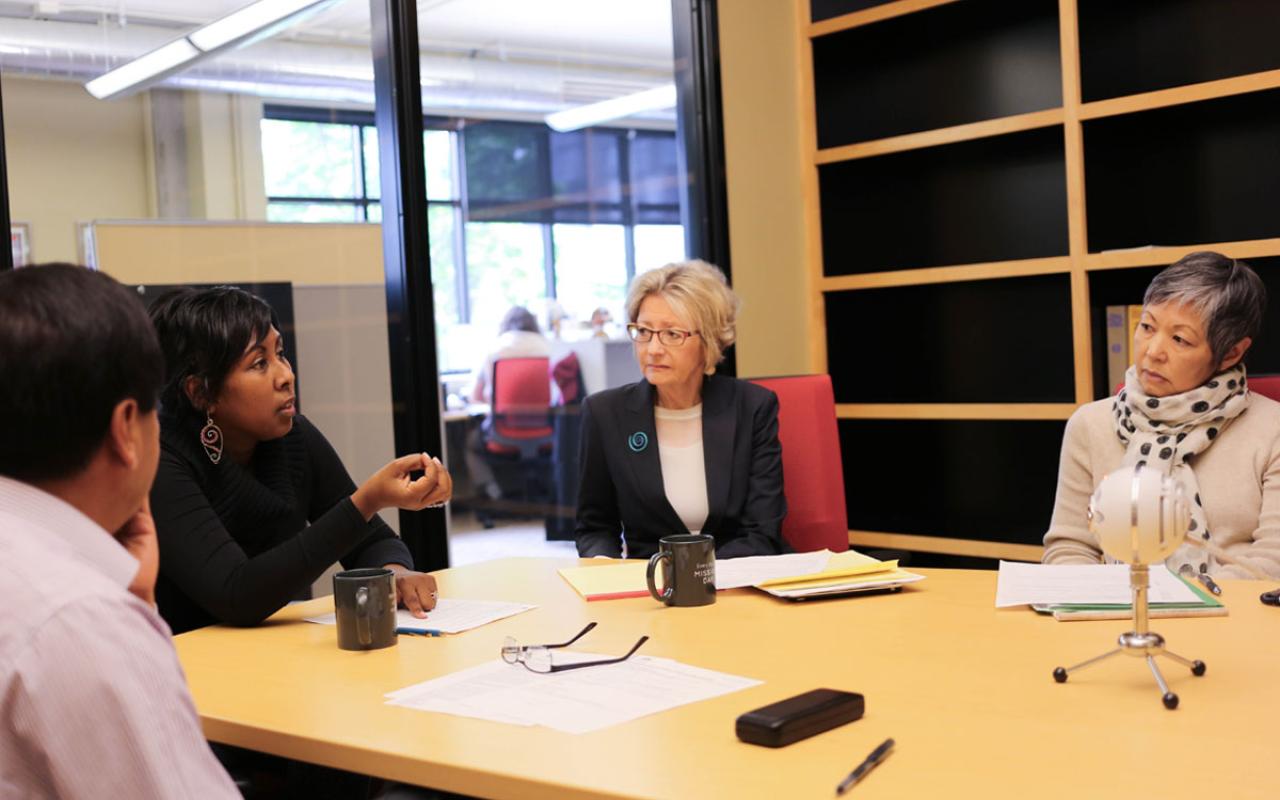
“Philanthropy represents power and privilege distilled,” says Roberta Phillip-Robbins, executive director of MRG Foundation.

